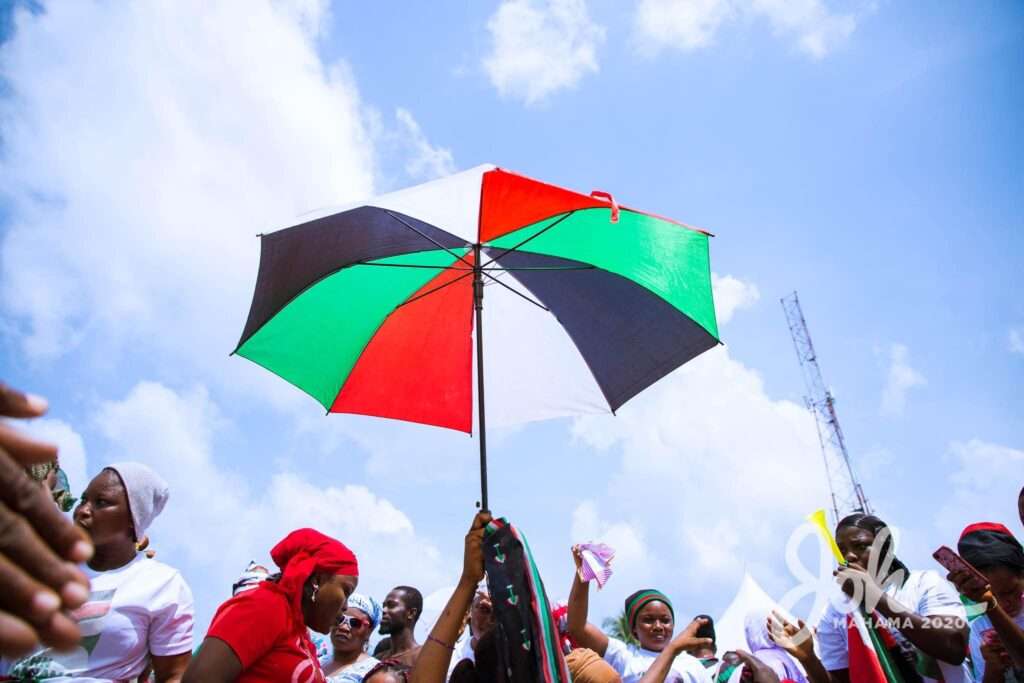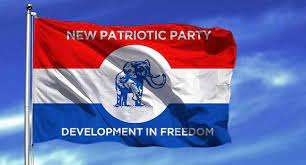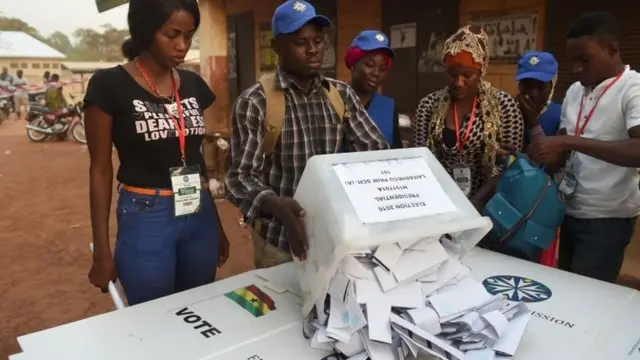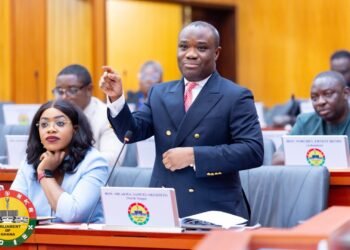Mussa Dankwah, Executive Director of Global InfoAnalytics, has revealed that the July 2024 poll, utilizing the likely committed voters’ model, indicated a significant shift in voter allegiance.
Dankwah indicated that the poll specifically showed that among those who voted for Nana Addo in 2020, 21.8% now intend to vote for John Mahama, while 67% will support Dr. Bawumia, 6.2% will back Alan Kyerematen, and 4.4% will vote for Nana Bediako.
He pointed out that a significant proportion, nearly 33%, of voters who supported Nana Addo in the 2020 elections have switched allegiance and will not be voting for the NPP’s candidate in the upcoming election.
“For those who voted for John Mahama, the poll shows that 93.4% will still vote for him, 4.6% will now vote for Bawumia, 0.9% will vote for Alan and 0.8% will vote for Nana Bediako. John Mahama has therefore lost nearly 6.6% of his 2020 votes to other candidates”.
“From the poll, 5.8% of NPP supporters who voted for Nana Addo in 2020 now intend to vote for John Mahama”.
Mussa Dankwah
Dankwah further revealed that the poll showed a strong preference among these voters, with 89.8% intending to cast their ballots for Dr. Mahamudu Bawumia, while a smaller percentage will support other candidates, including 2.6% for Alan Kyerematen and 1.5% for Nana Kwame Bediako.
He disclosed that among NDC supporters who defected to vote for Nana Addo in 2020, a significant majority of 83.5% will return to the fold and vote for Mahama, while 9.3% will persist in their defection and support Bawumia instead.
The remaining voters, Dankwa noted, will scatter, with 2.8% opting for Alan and 3.1% choosing Bediako, further fragmenting the vote.
According to the pollster, among the floating voters who previously supported Nana Addo in 2020, a significant shift is expected, with 47.3% now planning to vote for Mahama.
The others in this category, he detailed, will distribute their votes among the remaining candidates: 29.3% for Bawumia, 13.1% for Alan, and 9.4% for Bediako.
NDC Fails To Gain Significant Traction Among Nana Addo’s Former Supporters
Furthermore, Mussa Dankwah noted that among voters who support other parties but previously voted for Nana Addo, a small percentage will switch to the NDC, with only 3.5% planning to vote for John Mahama.
According to Dankwah, the majority of this group will instead support alternative candidates, with 48.8% choosing Alan Kyerematen, 40.7% backing Nana Bediako, 4.7% opting for Bawumia, and 1.2% selecting Kofi Akpaloo.


“For those who did not disclose their party affiliation but voted for Nana Addo, 33.1% will vote for Mahama, 44.2% for Bawumia, 12.9% for Alan, and 8.3% for Bediako”.
“Very insightful data from our tracking poll shows that on average, 29% of Nana Addo’s 2020 voters switched to John Mahama during the 2022 polling season compared to 9% of JDM switching to DMB, resulting in a net gain of 20% to JDM”.
Mussa Dankwah
Dankwah broke down the voter swing, explaining that during the 2023 season, a substantial 26% of voters transitioned from supporting Nana Addo to John Dramani Mahama.
He pointed out that a smaller 6% moved from John Mahama to Dr. Mahamudu Bawumia, yielding a net gain of 20% in favor of Mahama.
The Data Analyst reported that in the final round of polling, the voter swing saw 23% of Nana Addo’s supporters switching to John Mahama, while a smaller 4% of JDM’s supporters moved to Dr. Bawumia, resulting in a net gain of 19% for JDM, a slight decrease from the previous margin.
Dankwah noted that the consistency of polling results over the past 32 months indicates a stalemate among voters who cast ballots in 2020, meaning the outcome of the 2024 election will hinge on the preferences of first-time voters who will be casting their ballots for the first time.
A recent online poll revealed that voters’ decisions in the upcoming presidential election will be primarily influenced by the current economic situation, with 57% of respondents citing it as their top consideration.
Other factors, such as past performance (10%), party manifesto (4%), and candidate credibility (29%), will also play a role, but to a lesser extent.
Dankwah argued that this trend clarifies why a significant majority (71%) of voters claim they are unlikely to change their minds, whereas 11% say they are likely to switch, and around 18% have taken a neutral stance.
READ ALSO: King Paluta Addresses KOKA’s Criticisms of His Vocals























